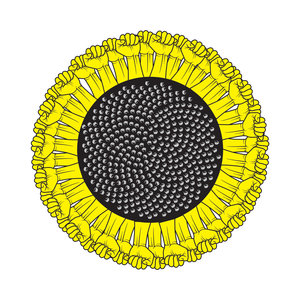Heirloom as Hybrid – 1890, The Essex Hybrid
I'll be the the first to admit it, I'm a sucker for the romantic notion of heirloom varities being pure as the driven snow. When I first strated exploring heirloom varities, I assumed, (and yes you can break it apart into THOSE three words), that these were pure lines of vegetables. The blue bloods pedigrees of the vegetable kindom.
HA! What an amateur assumption that was. Let's face it, farmers, horticulturists, seedmen, etc. have always had a vested interest in making the better producing plant. I love heirloom varities, and for the scale that I grew, they are fine. For market crops though they can be a real challenge. If you need to make money to flourish, a Watermelon Pink Beefsteak with it low yields is not a good choice. Cherokee Purples, Cherokee Chocolates and Black Cherry Tomatoes are prolific enough to turn some profit. And then there's the legendary Radiator Charlie's Mortgage Lifter.
As I dug deeper into this wonderful and crazy world of heirloom vegetables, I came across a seedman by the name of William Henry Maule. He had a local business in Philadelphia, PA. I was excited to find out that he had a farm in Newfield, NJ, which is about 10 miles from where I live. He grew his business of plants seeds around the turn of the century, and established himself as well-know figure in the history of the seed business.
So when I found this description from his 1890 catalogue I laughed at the crazy assumption I had made when I first started out. From page 53 in William Heny Maule's 1890 catalogue;
Essex Hybrid - A most valuable new variety gaining great popularity everywhere. It's very solid, of rich flavor, grows perfectly smooth, large in size, and is very productive. It ripens all over alike and flesh is very hard and solid. A vigourous grower, fruits evenly on the vines. Just the sort for shipping. All progressive growers should plant the Essex variety largely.
Just the sort for shipping? Perfectly smooth? Sounds like some of the complaints today lodged about the factory-farmed pale red wax ball tomatos that basically destroyed the tomato growing industry, and put a lot of heirloom varities at risk for extinction.
I think this is a good lesson to learn that hybrids are not a problem. In fact, a lot of heirloom varities are hybrids, they're just an older generation, and they don't have the word hybrid in their name. The word hybrid doesn't fit into the old romantic notion that Radiator Charilie's Mortgage Lifter has, which by the way is a hybrid, or the endearing quality of Aunt Ruby's German Green. Dear, sweet Aunt Ruby.
The important thing is that we realize now that we are the stweards to keep these varities going no matter if they are a hybrid or not. The issue is one of extinction, not distinction between two words that begin with the letter h. There's room at the table for both. Just not for GMOs.
As far as the Essex Hyrid, I couldn't find any trusted sources of information about them. I'll keep an eye out and if I do find anything about them I'll include it another post.
